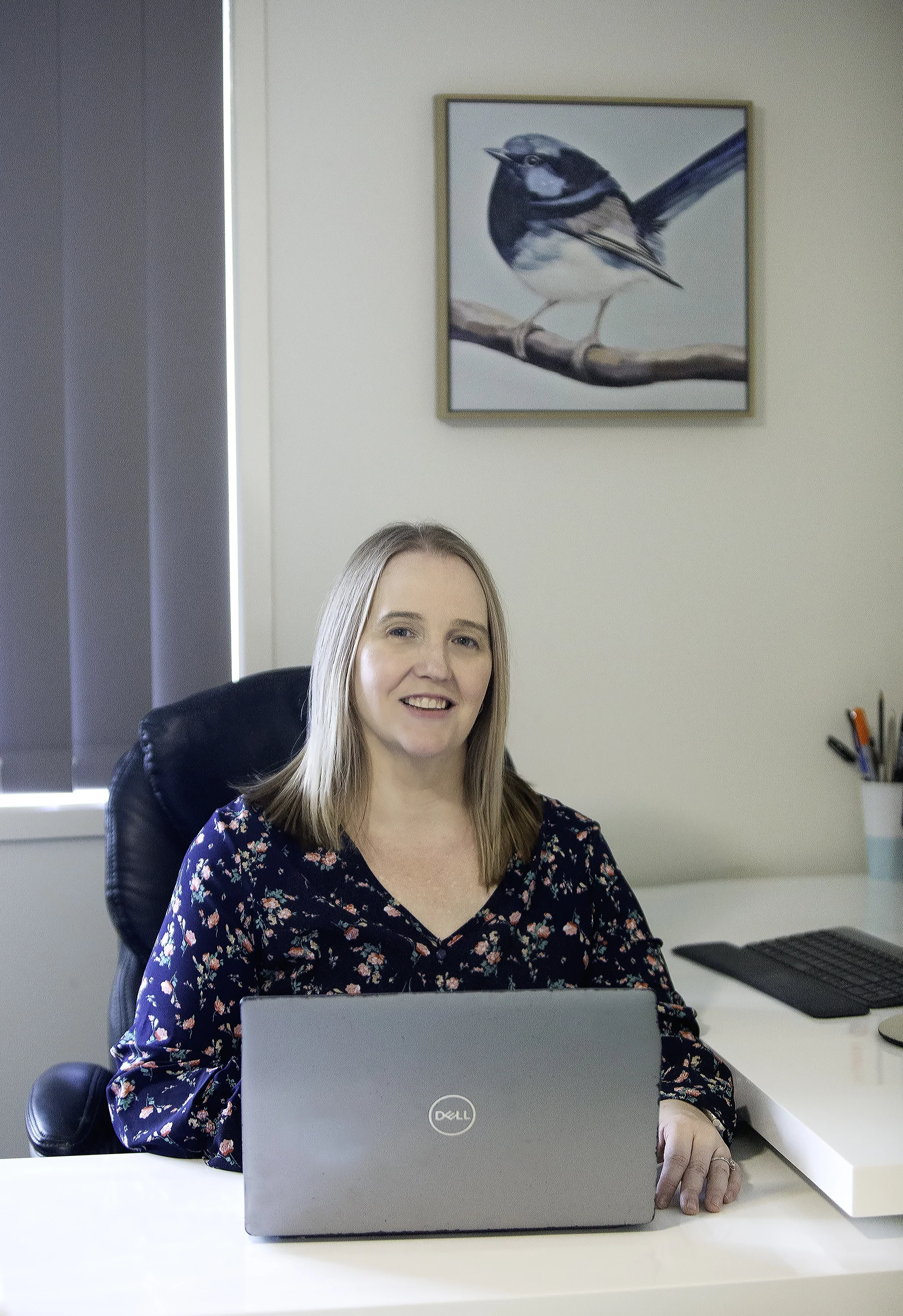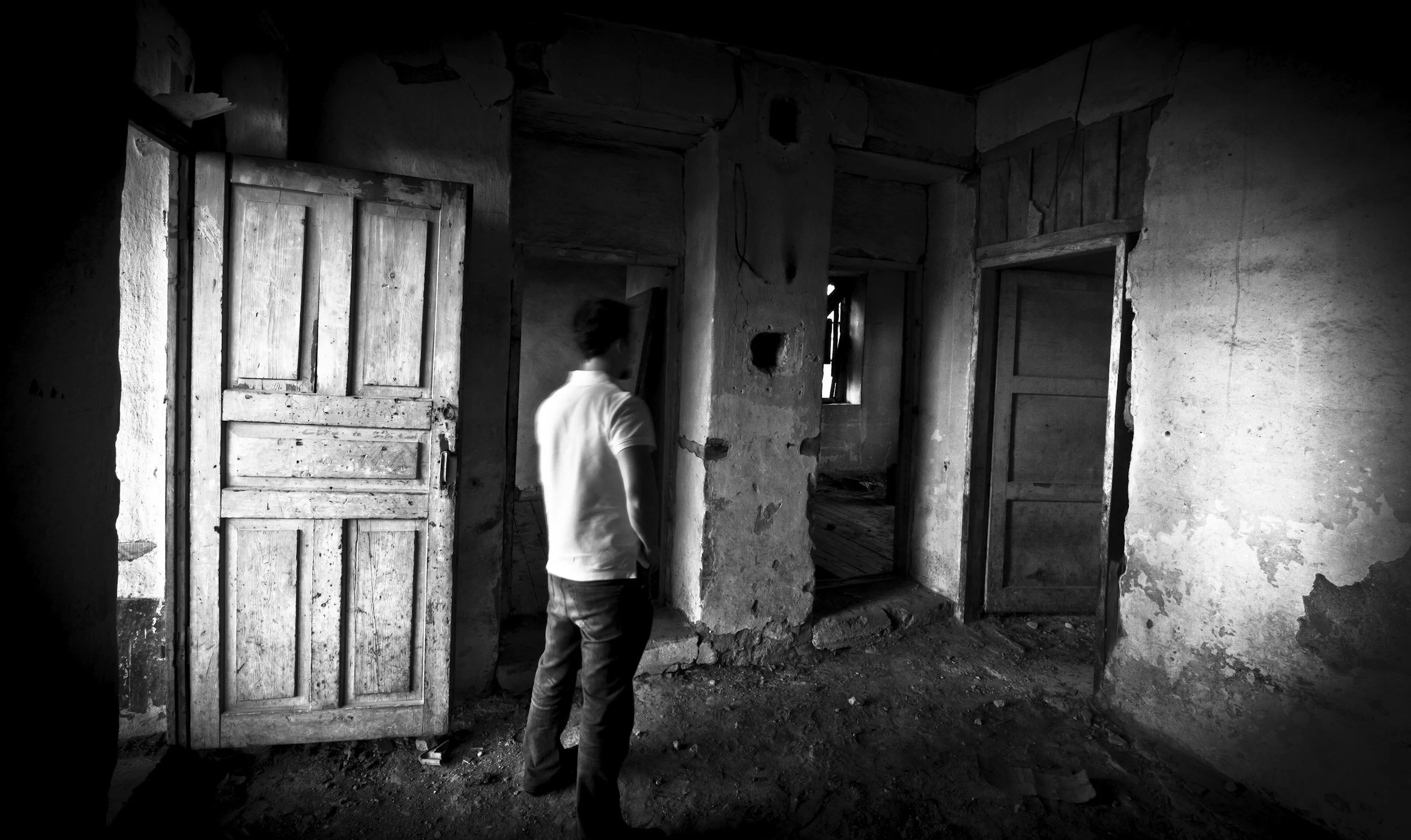
Online Therapy with a psychologist for those recovering from high control religion and cult recovery
“Leaving a high-control faith group or cult can feel like losing your whole world—but it can also be the first step toward freedom, identity, and healing.”
Leaving a high-control religious environment or group can be disorienting and emotionally complex. Many people experience confusion, guilt, fear, or loss as they begin to question long-held beliefs and relationships. It can take time to rebuild trust, identity, and a sense of autonomy after living under control or manipulation. Therapy offers a safe, non-judgmental space to process these experiences and explore what recovery, freedom, and meaning look like for you. Healing involves rediscovering your voice and learning to live from a place of authenticity and choice.
What is a high-control or cult-like religious environment?A high-control religious environment is one where individuals’ beliefs, emotions, and behaviours are tightly governed by a person or group claiming spiritual or moral authority. While some such groups may appear outwardly caring or community-oriented, control is often maintained through fear, guilt, secrecy, or manipulation. Members may be expected to conform completely to the group’s teachings, limit contact with outsiders, or suppress questions and doubts.
why is it so difficult to leave?Leaving a high-control group is not just a change of belief — it can feel like the loss of an entire world. Many survivors describe a deep internal conflict between loyalty to their faith or community and the growing awareness that something is harmful. These groups often define morality, belonging, and even salvation in ways that make questioning or leaving feel dangerous. Those who attempt to leave may face shunning, threats, or intense guilt.
Psychologically, this is linked to coercive control and trauma bonding — patterns where fear, punishment, and intermittent kindness create a powerful emotional attachment to the group or its leaders. This mixture of threat and affirmation can make it incredibly hard to separate emotionally, even after someone intellectually recognises the harm.
There are also deeper schema-level processes that help explain why leaving can be so difficult. In Schema Therapy, we understand schemas as enduring patterns of belief and feeling developed through early experiences. High-control environments often activate and reinforce schemas such as defectiveness/shame (“there’s something wrong with me”), subjugation (“I must please others to be safe”), unrelenting standards (“I must always do the right thing”), and dependence/incompetence (“I can’t trust myself”). When these schemas are triggered, the person may feel compelled to obey or conform to maintain a sense of safety and belonging.
Leaders and systems within these environments may consciously or unconsciously exploit these schemas by rewarding compliance and punishing autonomy. Over time, the individual’s authentic self becomes suppressed, replaced by a learned “adapted self” focused on survival. Leaving, therefore, means confronting both the external loss of community and the internal challenge of reclaiming autonomy from deeply ingrained schemas of fear, guilt, or inadequacy.
Understanding these responses through a psychological lens — rather than as moral weakness or spiritual failure — helps survivors begin to show compassion toward themselves and take steps toward healing and freedom.
What happens after leaving a cult or high-control group — and why can it feel so destabilising?Many people assume that freedom will immediately bring relief, but the early stages after leaving can be deeply disorienting. Without the familiar structure, certainty, and relationships of the group, survivors often describe a profound sense of loss — not only of community, but of identity, purpose, and belonging. It can feel as though every aspect of life must be re-learned: how to make decisions, what to believe, and whom to trust.
The emotional fallout can include grief, confusion, anger, or a haunting sense of emptiness. Some people experience post-traumatic stress symptoms such as hypervigilance, flashbacks, nightmares, or emotional numbing, particularly if they were shamed, silenced, or isolated during their time in the group. Others describe a kind of existential vertigo — the feeling that everything they once trusted has collapsed. These reactions are not signs of weakness, but natural responses to chronic coercion and loss of autonomy.
From a Schema Therapy perspective, leaving a high-control group can trigger intense internal conflict between different “modes” or parts of the self. For example, an Inner Critic mode — shaped by years of rigid rules and fear of punishment — might attack the person for leaving, calling them sinful, unfaithful, or selfish. A Vulnerable Child mode may feel frightened, abandoned, or desperate for reassurance. Meanwhile, a Healthy Adult mode may be trying to build safety and autonomy but can feel small and uncertain in the face of such powerful internal voices. Therapy can help survivors strengthen that Healthy Adult mode, so they can begin to comfort and protect the parts of themselves that were silenced or shamed.
Attachment wounds are also common after leaving. In many high-control settings, leaders and fellow members become attachment figures — people who represent safety, authority, or even divine approval. When that connection is broken, the loss can feel similar to a bereavement, often accompanied by guilt or longing. Survivors may find themselves missing the sense of belonging, even while recognising the harm they endured. Understanding this as a trauma bond, rather than a sign of weakness or misplaced loyalty, helps reframe the experience through compassion.
Over time, survivors begin the work of rebuilding identity — learning to make decisions independently, re-evaluating beliefs, and developing a sense of self that is not based on fear or external control. This process is gradual and can feel messy, but it represents a deep and courageous act of reclamation. Therapy provides a safe space to explore these changes, regulate overwhelming emotions, and build new patterns of self-trust, connection, and meaning.
My Primary Therapy Modalities:
Schema Therapy - Individual and Couples (Primary Modality)
Schema Therapy is my primary modality, and is an evidence-based psychological approach that supports the processing of trauma and helps people understand and change long-standing patterns of thinking, feeling, and relating that often develop in response to unmet emotional needs or adverse early experiences. It is particularly helpful for individuals who notice repeated relational patterns, entrenched coping responses, or ongoing difficulties with self-worth, emotions, or boundaries.
Schema Therapy uses a range of techniques, including cognitive strategies to identify and challenge unhelpful beliefs, experiential techniques such as imagery and chair work to process emotional and relational experiences, and behavioural strategies to support new, healthier patterns of coping. The therapeutic relationship itself is also an important part of the work, providing a corrective emotional experience that supports healing, emotional regulation, and lasting relational change.
Cognitive Behavioural Therapy & Exposure & Response Prevention (ERP)
Cognitive Behavioural Therapy (CBT) is an evidence-based approach that focuses on identifying and changing unhelpful patterns of thinking and behaviour that contribute to emotional distress. It supports people to develop practical skills for managing symptoms, improving coping, and responding to challenges in more balanced and adaptive ways.
Exposure and Response Prevention (ERP) is a specialised, evidence-based form of therapy used primarily to treat obsessive–compulsive disorder (OCD) and related anxiety conditions. It involves gradually and safely facing feared thoughts, situations, or sensations while learning to resist compulsive or avoidance behaviours, helping reduce anxiety and build confidence over time.
Eye Movement Desensitisation and Reprocessing (EMDR)
Eye Movement Desensitisation and Reprocessing (EMDR) is an evidence-based therapy designed to help people process and resolve traumatic or distressing memories that continue to impact their emotional wellbeing. By using bilateral stimulation while recalling difficult experiences, EMDR supports the brain’s natural healing processes, reducing the intensity of trauma-related distress and helping memories become less overwhelming over time.
Gottman Therapy & Emotionally Foused Therapy (Couples & Relationships)
Emotionally Focused Therapy (EFT) is an evidence-based, attachment-informed approach that helps individuals and couples understand, experience, and express emotions in healthier ways. It focuses on identifying emotional patterns and strengthening secure connection, supporting deeper emotional safety, responsiveness, and lasting relational change.
The Gottman Method Couples Therapy is an evidence-based approach to relationship therapy grounded in decades of research on what helps relationships thrive or break down. It focuses on strengthening friendship, improving communication and conflict management, increasing emotional connection, and reducing patterns such as criticism, defensiveness, contempt, and withdrawal through practical, structured interventions.
Hi, I’m Kylie Walls, a registered psychologist and the founder of Refuge Psychology.
My practice is shaped by professional experience, research, and a long-standing commitment to supporting people navigating complex emotional, relational, and faith-related experiences. I have worked with individuals from a wide range of backgrounds and faith traditions, and I have also held volunteer and professional roles within church and ministry contexts. These experiences have deepened my understanding of the unique dynamics that can arise when wellbeing, identity, and faith intersect — and the importance of care that is both sensitive and clinically grounded.
I have published research on control, attachment, and emotional regulation, and have previously worked as a Domestic and Family Violence Advisor within a faith-based organisation. I began my career as a teacher and later spent time working in photography, but my ongoing interest in people — their stories, relationships, and inner worlds — led me into psychological practice. I bring both professional and lived experience to my work in a way that is clinically grounded, respectful, and client-led.
ABOUT KYLIE
Areas of Interest
I offer support to adults who may be:
Managing general mental health concerns such as anxiety, depression, stress, grief, or life transitions — whether or not these are connected to faith or ministry.
Navigating confusing, painful, or high-pressure experiences in church or ministry environments, including those recovering from spiritual abuse, coercion, or high-control faith settings, including cults.
Pastors, ministry leaders, and caregivers experiencing stress, burnout, role strain, or relational challenges within ministry or leadership roles.
Experiencing domestic and family violence, coercive control, or destructive relationship patterns — whether in intimate partnerships, family, community, or faith-based contexts.
Experiencing scrupulosity / Religious OCD or distress related to rigid or fear-based beliefs.
Facing workplace challenges, including bullying, power imbalances, role strain, or organisational conflict, and the emotional toll these experiences can create.
Couples seeking support around communication, connection, conflict patterns, recovery after relational harm, infidelity, or navigating values and expectations within relationships.
Inclusive and Client-Led Care
While I have a particular interest in supporting people from faith backgrounds, I welcome clients from all backgrounds. My focus is on providing compassionate, trauma-informed, and ethical psychological care that honours each person’s values, experiences, and goals for wellbeing.
This is a collaborative space, shaped by your needs and values.
My Approach is…
evidence basedSupport is grounded in well-established psychological research and clinical approaches shown to be effective, while remaining responsive to your needs and goals.
compassionateCare is offered with warmth, empathy, and respect, creating a safe space where you can be heard with understanding.
Trauma-informedTherapy recognises the impact of past and present trauma, prioritising your safety, choice, and sense of control throughout the process. Trauma-informed approaches are used.
respectful of your unique situation, beliefs and storySupport is tailored to your lived experience, values, and worldview, with sensitivity to cultural, spiritual, and personal contexts.
Have questions about support for high-control religion & cult recovery?
Q&A-
Yes. If you have a current Mental Health Treatment Plan from your GP, you may be eligible to receive a Medicare rebate for up to 10 individual psychology sessions per calendar year. These rebates help reduce the out-of-pocket cost for each session. You’ll need to provide a copy of your referral letter and MHTP prior to your first appointment.
-
Although there are some presentations that I cannot safely treat online, I work with individuals experiencing a range of mental health concerns, from mild anxiety or low mood through to more complex challenges such as PTSD, dissociation, religious trauma, and OCD. If your presentation is more complex, I will work collaboratively with your broader care team (e.g., psychiatrist, GP, or support worker) where appropriate, to ensure you receive safe and effective care.
Online therapy is offered as long as it is deemed clinically appropriate and safe for your specific needs. -
Yes. Research shows that online therapy can be just as effective as face-to-face sessions for a wide range of concerns, including depression, anxiety, trauma, and relationship issues. It also offers convenience, privacy, and access to support regardless of location. All sessions are conducted via a secure telehealth platform.
-
Therapy offers a safe, confidential space to make sense of experiences that may have been dismissed, minimised, or spiritualised within the group. A trauma-informed psychologist can help survivors understand patterns of coercive control, rebuild a sense of identity, and develop skills for emotional regulation, boundaries, and healthy relationships.
Therapy may also explore the spiritual impact of leaving — helping individuals separate faith from fear and reconnect with a sense of meaning that feels authentic. Some people choose to rebuild a gentle spiritual life, while others prefer to step away from religion altogether. There is no single right way. The goal is not to impose belief or disbelief, but to support autonomy, self-trust, and healing after experiences of control or harm.
What Support Can Look Like
Transition support focuses on:
Better understand the dynamics that contribute to high-control religion, and your own story in relation to this.
Processing the loss of community and spiritual certainty
Healing from psychological manipulation, coercive control, and spiritual trauma
Rebuilding trust in your own thoughts, emotions, and decision-making
Exploring what you now believe—without pressure to return or reject your faith
Establishing healthy relationships and boundaries outside the former group
Supporting recovery from fear-based theology, shame, or performance-based worth
Many individuals also face anxiety, depression, OCD-like symptoms (especially scrupulosity), C-PTSD, or identity confusion. Therapeutic support offers a grounded, compassionate place to rebuild your sense of self.
-
Absolutely not. This is a space for healing, not deconversion. Some clients want to remain within their denomination with increased awareness of dynamics that can cause harm, and with protective measures in place to ensure the wellbeing of themselves and their family. Some choose to reconstruct their faith through changing denominations or some beliefs that no longer sit well with them; others choose a different spiritual or secular path. My role is to support you in finding clarity, agency, and well-being—without an agenda. -
High-control dynamics can exist in both fringe and mainstream religious contexts. Healthy churches foster consent, humility, and openness to questions. By contrast, spiritually abusive or high-control groups often discourage questioning, demand rigid obedience to authority, isolate members from outside influences, and frame doubt as rebellion or sin. Over time, these dynamics can erode a person’s sense of autonomy, identity, and safety.
While I work from a Christian-informed lens, I offer support without stereotyping or assuming all faith is harmful. Whether you’re re-evaluating your beliefs, processing painful spiritual experiences, or seeking to remain in your faith community with new boundaries, this space is here to help you explore what healing and freedom look like for you.
-
You might feel fear or guilt when questioning leaders, struggle with decision-making, or doubt your perceptions. You may have been told that obedience equals faithfulness, even when you felt unsafe. Therapy helps you recognise these dynamics and rebuild confidence in your own judgment. -
Schema Therapy helps you understand deeply-rooted patterns formed through past experiences of control, shame, or dependency. By identifying core schemas — such as subjugation, defectiveness, or mistrust — therapy supports healing through emotional processing, boundary repair, and self-compassion. -
Yes. Many high-control groups appear loving and supportive at first but use subtle manipulation, fear, or exclusion to maintain control. Emotional dependency and cognitive dissonance can make it hard to recognise harm until much later. -
Yes. A faith-sensitive approach honours your beliefs while helping you process trauma. You do not need to reject your faith to heal from harmful experiences — therapy supports your journey toward a more authentic and life-giving spirituality. -
It’s common to feel anger, grief, or disillusionment after spiritual abuse. Therapy offers space to explore these feelings without judgment and to reconnect with meaning and values on your own terms.
-
Chronic fear, shame, or surveillance can activate long-term stress responses. People may experience hypervigilance, flashbacks, sleep problems, or emotional numbing. Trauma-informed therapy helps regulate the nervous system and restore a sense of safety.
-
Psychological mechanisms such as trauma bonding, fear, dependency, and identity fusion play a role. Many people stay because leaving feels unsafe, or because they believe leaving means betraying God or loved ones. Therapy can help you understand these dynamics with compassion. -
After betrayal by trusted leaders, hypervigilance and self-protection are normal. Schema Therapy works to rebuild safe relational patterns, helping you reconnect without losing your boundaries or voice. -
Unfortunately, yes this is normal. Many survivors report intrusive fears of punishment, guilt for leaving others behind, or anxiety about spiritual consequences. Therapy helps distinguish internalised control from genuine spiritual values.
-
Healthy communities allow questioning, personal boundaries, and emotional honesty. High-control groups often use fear, shame, or exclusion to enforce conformity. Learning to recognise these differences supports safer relationships and faith expressions.
-
Shame is a powerful control tool in high-control settings. Survivors may internalise messages of unworthiness or failure. Therapy helps shift from shame to self-acceptance and compassion.
-
This is a very common experience for people who have left cults or high control religious environments. Family may remain in the system you left, or possibly your relationships with family were damaged in the process of your joining or remaining in the high control religious system. Therapy can help you navigate complex family dynamics, clarify boundaries, determine where there are safe ways to seek reconnection, and rebuild relationships safely, especially if family members remain in the group. -
Rebuilding community can take time. Therapy can support you in connecting with safe, healthy relationships that honour your autonomy, values, and voice.
To take the next step, book an confidential online session with psychologist Kylie Walls and access compassionate, trauma-informed support wherever you are in Australia.
View the Lastes on the Refuge Psychology Blog
let's get started




















